I was talking with someone the other day about how AAA video games have achieved a sort of creative homeostasis. They’re generally made by teams with the budget and experience to know what works and what doesn’t, so on a simple craft level, most AAA games in the 2020s average out to decent. This is a golden age for C+ gaming. That makes Crime Boss: Rockay City exciting, but for all the wrong reasons.
It’s ambitious, and I can see the shape of what its developer, Ingame Studios, was trying to make. It’s supposed to be an over-the-top ‘90s crime dramedy with elements of first-person shooters, stealth games, and management sims, but none of it actually works. It’s not even a particularly entertaining failure; it’s just sort of there.
You play Crime Boss as drug dealer Travis Baker (Michael Madsen), who’s a small fish in the criminal underworld of Rockay City, Florida, where it’s apparently been 1980 for the last 40 years. Travis spends most of his time slinging his trademark little blue pills and feuding with his rival Hielo (Vanilla Ice, essentially playing himself).
After Rockay City’s crimelord is assassinated, the gangs of Rockay immediately move to fill the power vacuum, while the cops call in borderline-mythical super-cop, The Sheriff (Chuck Norris), to deal with the crime wave.
In the middle of all this, Travis decides he’s got nothing to lose and sets out to take control of the city. His war coalition includes Casey (Kim Basinger), his girl Friday; Nasara (Damion Poltier), an intelligence analyst who’s visibly slumming by hanging out with Travis; and Touchdown (Michael Rooker), an unhinged football fanatic and war veteran.
Travis’ campaign to take over Rockay is split between FPS missions in the field, where you go on heists and attack rivals’ turf, and a sort of management sim where you recruit and trick out randomly-generated, disposable members of Travis’ crew.
Early on, your biggest limit is cash. You earn some passive income from every neighborhood you control in Rockay, but that’s pocket change compared to what it costs to hire and outfit a new team member.
If you’re low on funds, you can send Travis into the field for free, but if he’s killed on a job, your campaign ends on the spot.
In a better game, this could be an interesting set of complications. Your resources are sharply limited, but every other gang in the city, including the police department and the mall cops, is crewed up like Blackwater. That forces you to play it sneaky, gather cash, recruit strong minions, and carefully pick your targets (i.e. Hielo), especially with the Sheriff waiting in the wings.
Every mission is procedurally generated. You’re dropped into a random corner of one of the same six or eight maps, and your goal is to attack and/or rob a specific building. This effectively sets the game in an endless series of identical, generic locations. In my time with Crime Boss, I robbed at least six copies of the same warehouse, burglarized the same strip mall three times, and had three pitched turf battles outside the same hotel.
Crime Boss puts a lot of emphasis on stealth, but the mechanics are underbaked. A guard can spot you in five seconds and raise a general alarm in one, because he’s apparently part of a hive mind with all the local law enforcement. At this point, you’ve got maybe a minute until you’re drowning in hostile police.
The cops in Crime Boss feature the same sort of AI that was a running joke in the ‘00s, where video game law enforcement had no settings between “responding to petty street crime” and “full militarized response.” I got a SWAT team called on me at one point because a security guard watched me pick a lock. I assume that if I went on a full GTA rampage in Rockay City, the police would drop a nuke on me.
When you’re under fire, enemies can come at you from any direction and at any time, with no plan other than drowning you in a human wave. I’ve lost entire runs because a guy with a shotgun suddenly spawned in front of me.
In theory, you can mitigate this by bringing up to three other characters as backup, which you can swap between at any time. In practice, they’re little better than meat shields and extra lives. It’d be useful if you could do something like station one in a high place with a rifle or trust them to secure a perimeter while you robbed a place, but Crime Boss doesn’t have the mechanical depth to permit that.
I might be able to pass some of this off if the rest of the game had some charm to it, but almost nobody in Crime Boss’ celebrity cast wants to be here.
Michael Madsen snarls every line like an angry drunk, Kim Basinger’s entirely checked out, Vanilla Ice isn’t worth discussion, and Chuck Norris, as ever, does not know what “emoting” is and refuses to learn. The only real standout is Daimon Poitier, who at least seems to be putting in the effort.
If the idea was to make Crime Boss feel like a playable post-Tarantino crime movie, it kind of succeeds, but only in the same way a lot of those movies did. They do exist — and you can’t take that away from them — but they don’t have remotely comparable wit or pacing.
To put it in ‘90s film nerd terms: if Grand Theft Auto is Pulp Fiction, Crime Boss: Rockay City is 8 Heads in a Duffel Bag.
Ask your parents.
Crime Boss: Rockay City Review — The Bottom Line
Pros
- The environments are decent.
- Daimon Portier’s having more fun than anyone else as your mission control.
- It’s at its best in co-op, where you can at least crew up.
Cons
- The action is either boring or irritating, with no middle ground.
- Bad stealth mechanics.
- All the actors just sound really bored.
If there’s any fun to be had in Crime Boss: Rockay City, it’s in co-op mode, where you and up to three friends can team up as Travis’ crew. It’s worth a laugh to go on a rampage through Not-Miami’s criminal underground as a crew of four hyperviolent Steve Buscemis, and it does seem to be how the game is meant to be played.
Even then, it’s repetitive when it isn’t irritating. Crime Boss tries to stitch together a bunch of procedurally generated, samey content with a few Hollywood faces and call it a video game, but ends up not being much of anything at all.
[Note: 505 Games provided the copy of Crime Boss: Rockay City used for this review. Featured image via 505 Games.]

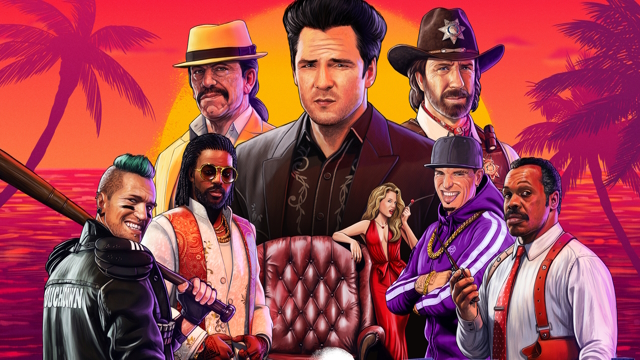
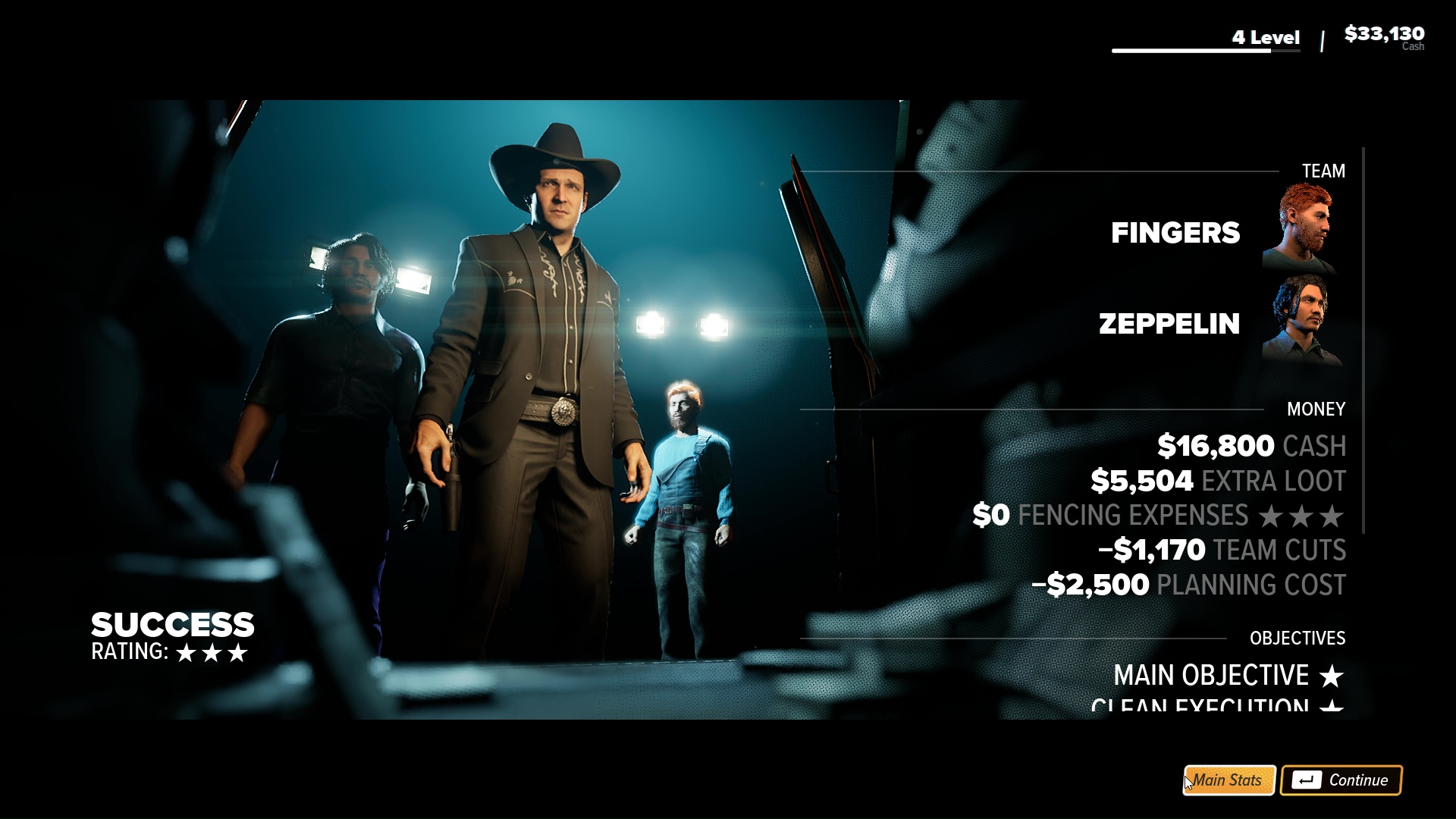
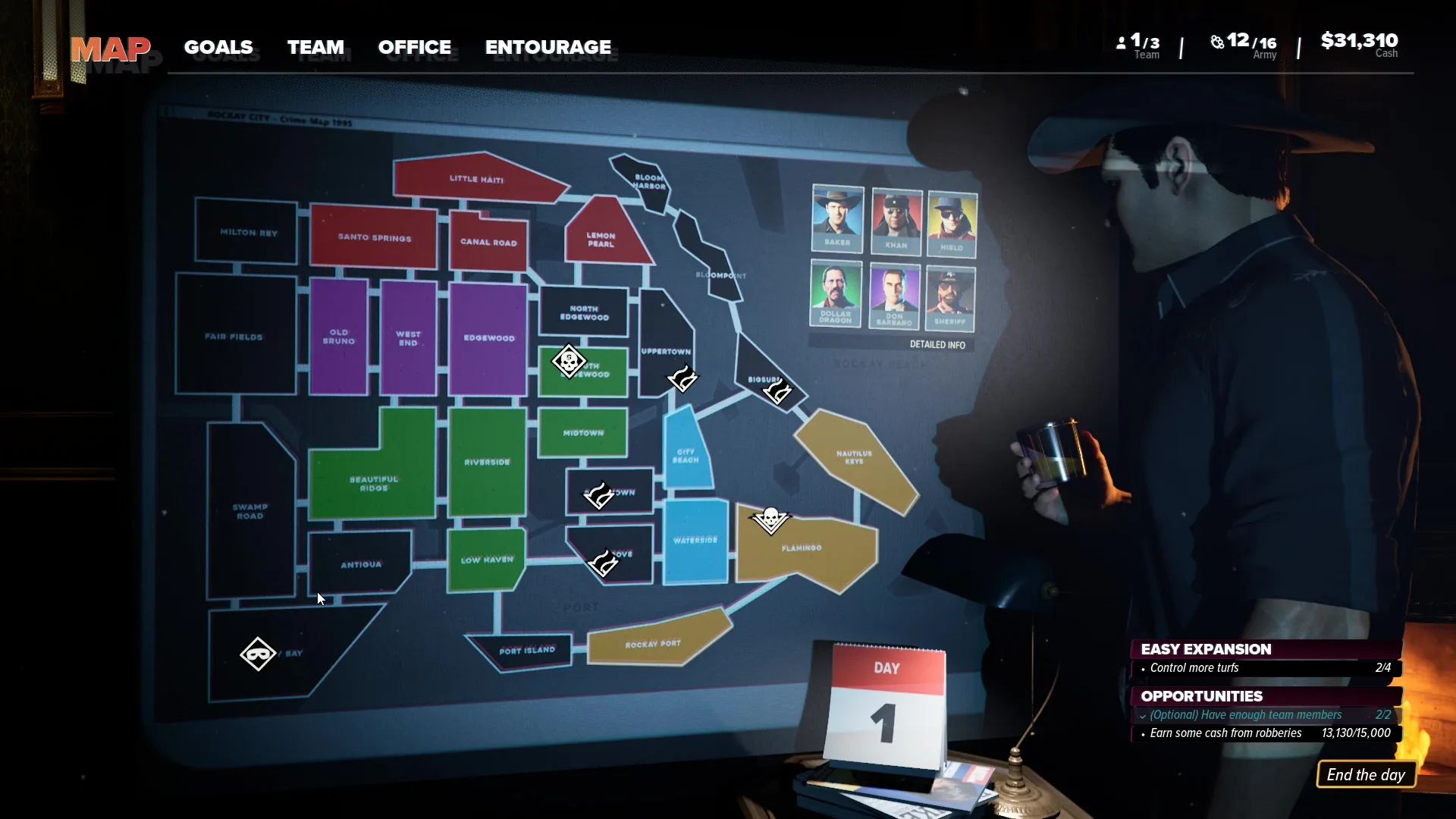
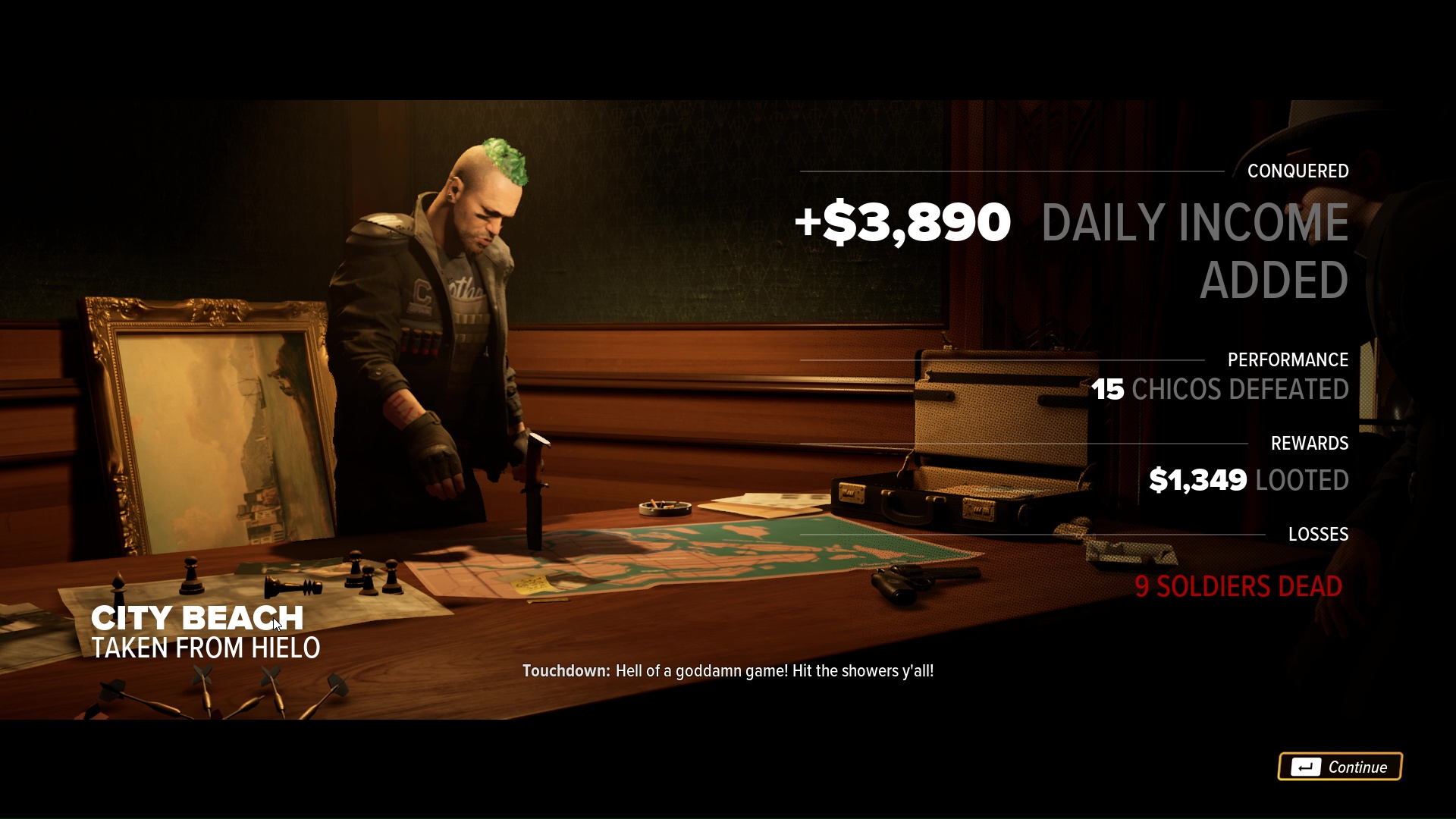
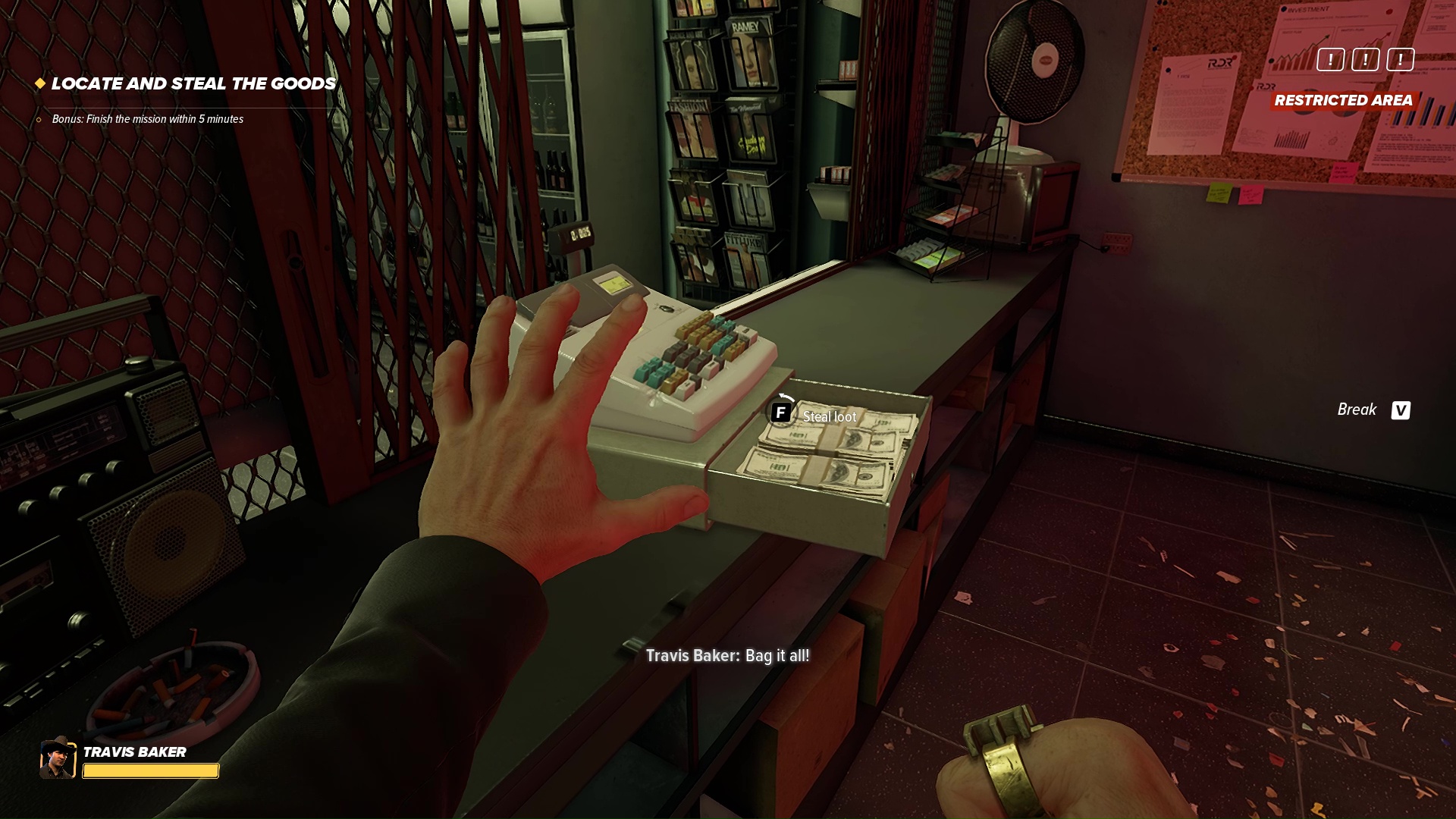





Published: Mar 29, 2023 04:59 pm